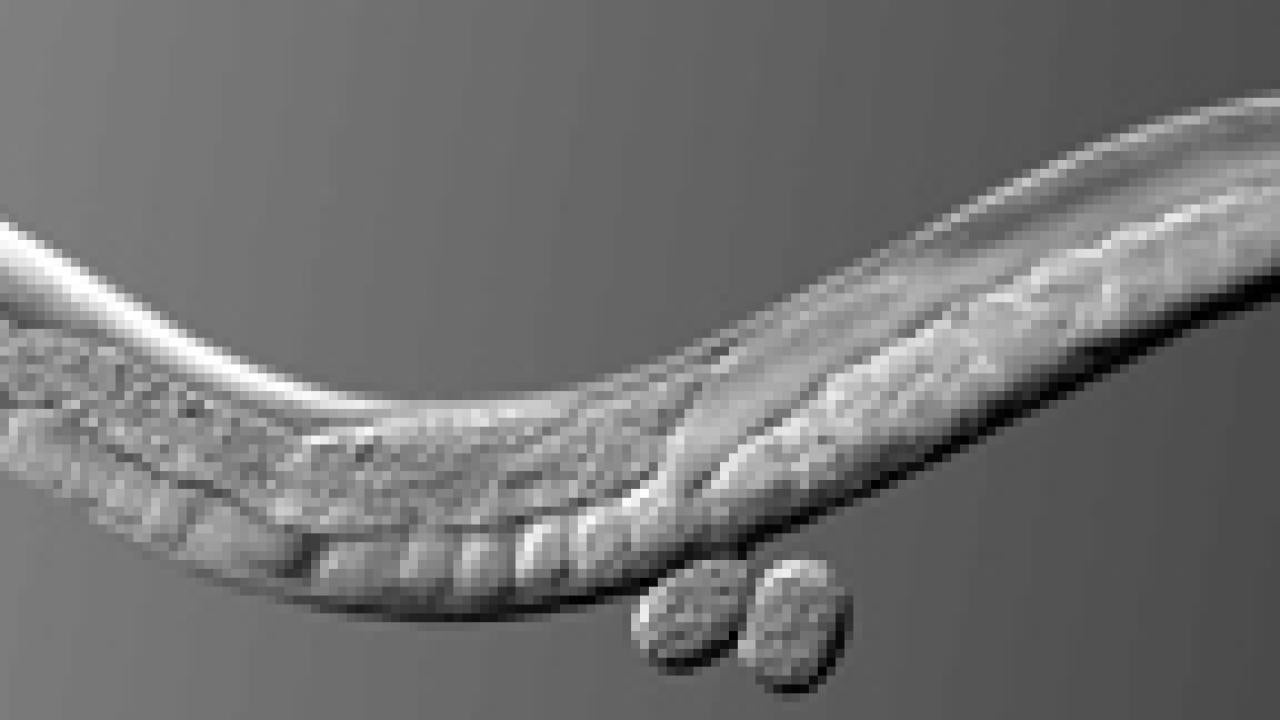New research from UC Davis shows why a species of tiny worm can learn to ignore an odor — information that could have implications for how human memories are formed.
Scientists have known for decades that sensory neurons — nerves in places like our fingers, ears and eyes — begin the complex task of processing sights, sounds and other stimuli before forwarding the job to the body’s mainframe computer: the brain. But just how these neurons accomplish their task has not been well understood.
Now researchers at UC Davis have made a startling discovery: that in olfactory neurons, odor bypasses the normal regulatory pathways in the nucleus and instead boosts synthesis of a protein by acting on RNA, the molecular messengers that typically carry instructions from DNA in the nucleus to protein-building mechanisms in the cell.
“What is unique about this study is that it provides the first evidence that a chemical in our environment changes gene expression in its own, very specific way within a sensory organ,” explained Noelle L’Etoile, the study’s principal investigator and assistant professor of psychiatry and behavioral sciences at UC Davis’ Center for Neuroscience. “This implicates the real importance of RNA in controlling when proteins are made, and shows that the environment can actually change what RNA does.”
Probing deep into the molecular pathways of a microscopic worm called C. elegans, L’Etoile and co-author Julia Kaye, a postdoctoral researcher at the center, found that prolonged exposure to an odor boosts production of a protein that curbs the worm’s response to the smell, and that this activity happens very close to the area where the smell enters the neuron. Their study appears in the Jan. 15 issue of the journal Neuron.
The regulatory protein guiding this response is also found in an important region of memory formation in the mammalian brain, L’Etoile explained. “So this work could lead to discoveries about the role these proteins play in memory and higher order learning in humans,” she said.
To study the molecular basis of smell, the researchers used a population of C. elegans with a mutation that blocks the worms’ normal ability to ignore odors that are not linked to food. L’Etoile had earlier found that this mutation occurs in a region of RNA that regulates the expression, or synthesis, of a protein called PKG.
In the new study, they found that RNA in sensory neurons of the defective worms no longer binds to Pumilio proteins, regulatory molecules found in a diversity of species from yeast to humans. This led to their discovery that when normal worms are exposed to the odor of butanone with no food link, a Pumilio protein in the olfactory neuron ratchets up production of PKG, prompting the creatures to eventually lose interest in the smell. The discovery holds an additional, new twist, L’Etoile added: an exciting role reversal for Pumilio proteins, which until now have only been known to suppress protein synthesis.
Other scientists who contributed to the study: Natalie Rose, a student, and Brett Goldsworthy, a research associate, both at UC Davis when they did the work; and Andrei Goga at UC San Francisco.
Media Resources
Dave Jones, Dateline, 530-752-6556, dljones@ucdavis.edu
